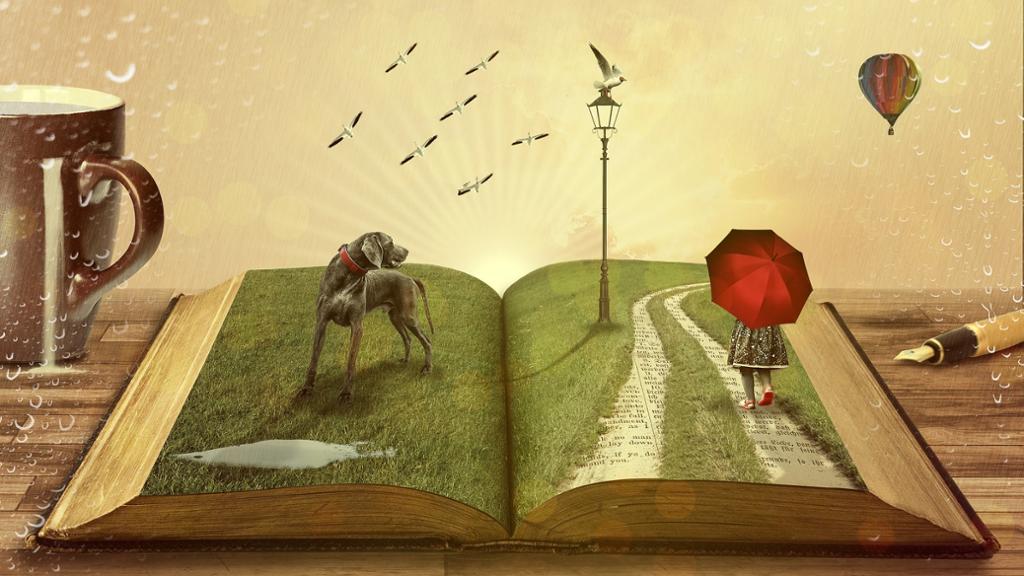Excerpt: Fiction is freedom by Matt Haig

Books might be one way to recover some space. Stories. Fiction.
When I was eleven, friendless, struggling to fit in at school, I read The Outsiders and Rumble Fish and Tex by S.E. Hinton, and I suddenly had friends again. Her books were friends. The characters were friends. And real ones, too, because they helped me out. Just as at other times Winnie-the-Pooh and Scout Finch and Pip and Bonjour Tristesse’s Cécile were friends. And the stories they inhabited could be places I could hide inside. And feel safe.
In a world that can get too much, a world where we are running out of mind space, fictional worlds are essential. They can be an escape from reality, yes, but not an escape from truth. Quite the opposite. In the ‘real’ world, I used to struggle with fitting in. The codes you had to follow. The lies you had to tell. The laughs you had to fake. Fiction felt not like an escape from truth but a release into it. Even if it was a truth with monsters or talking bears, there was always some kind of truth there. A truth that could keep you sane, or at least keep you you.
For me, reading was never an antisocial activity. It was deeply social. It was the most profound kind of socialising there was. A deep connection to the imagination of another human being. A way to connect without the many filters society normally demands.
So often, reading is seen as important because of its social value. It is tied to education and the economy and so on. But that misses the whole point of reading.
Reading isn’t important because it helps to get you a job. It’s important because it gives you room to exist beyond the reality you’re given. It is how humans merge. How minds connect. Dreams. Empathy. Understanding. Escape.
Reading is love in action.
It doesn’t need to be books. But we do need to find that space.
We are frequently encouraged to want the most extreme and exciting experiences. To act on a heady impulse for action. To ‘Just Do It’ as Nike always used to bark at us, like a self-help drill instructor. As if the very point of life is found via winning a gold medal or climbing Mount Everest or headlining Glastonbury or having a full-body orgasm while sky-diving over the Niagara Falls. And I used to feel the same. I used to want to lose myself in the most intense experiences, as if life was simply a tequila to be slammed. But most of life can’t be lived like this. To have a chance of lasting happiness, you have to calm down. You have to just be it as well as just do it.
We crowd our lives with activity because in the West we often feel happiness and satisfaction are achieved by acquisition, by ‘seizing’ the day, or by going out and ‘grabbing’ life by the horns. We might sometimes do better to replace life as something to be grabbed at, or reached for, with something we already have. If we clear out the mental clutter we can surely enjoy it more.
The Buddhist monk Thích Nhất Hạnh writes in The Art of Power that while ‘many people think excitement is happiness’, actually ‘when you are excited you are not peaceful. True happiness is based on peace.’
Personally, I wouldn’t want a life of total neutral inner peace. I’d want to occasionally experience some wild intensity and exhilaration. That is part of me. But I crave that peace and acceptance more than ever.
To be comfortable with yourself, to know yourself, requires creating some inner space where you can find yourself, away from a world that often encourages you to lose yourself.
We need to carve out a place in time for ourselves, whether it is via books or meditation or appreciating the view out of a window. A place where we are not craving, or yearning, or working, or worrying, or over-thinking. A place where we might not even be hoping. A place where we are set to neutral. Where we can just breathe, just be, just bathe in the simple animal contentment of being, and not crave anything except what we already have: life itself.
Copyright © Matt Haig,
Canongate Books.
Guoskevaš sisdoallu
Tasks related to Matt Haig's text 'Fiction is Freedom'